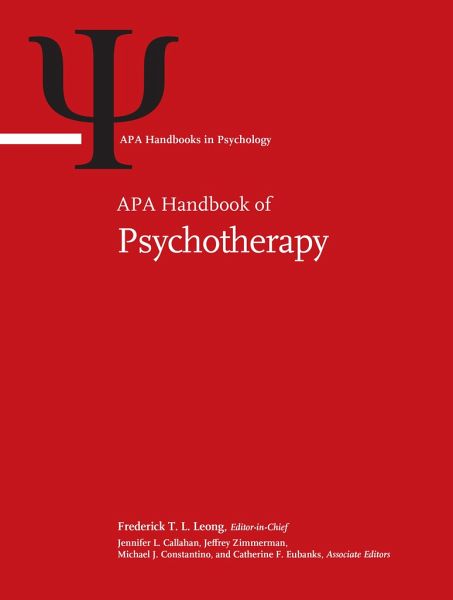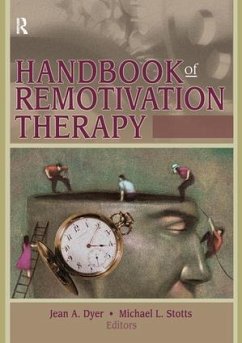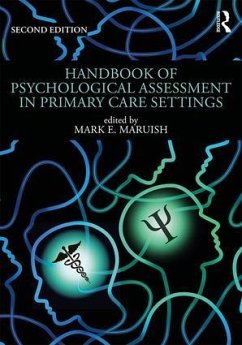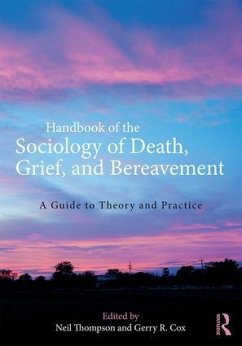Nicht lieferbar

APA Handbook of Psychotherapy
Volume 1: Theory-Driven Practice and Disorder-Driven Practice Volume 2: Evidence-Based Practice, Practice-Based Evidence, and Contextual Participant-Driven Practice
Herausgeber: Eubanks, Catherine F.; Constantino, Michael J.; Callahan, Jennifer L.; Zimmerman, Jeffrey; Leong, Frederick T. L.
Versandkostenfrei!
Nicht lieferbar
This 2-volume handbook presents a comprehensive overview of the primary approaches to theory, research, training, and practice in psychotherapy.












